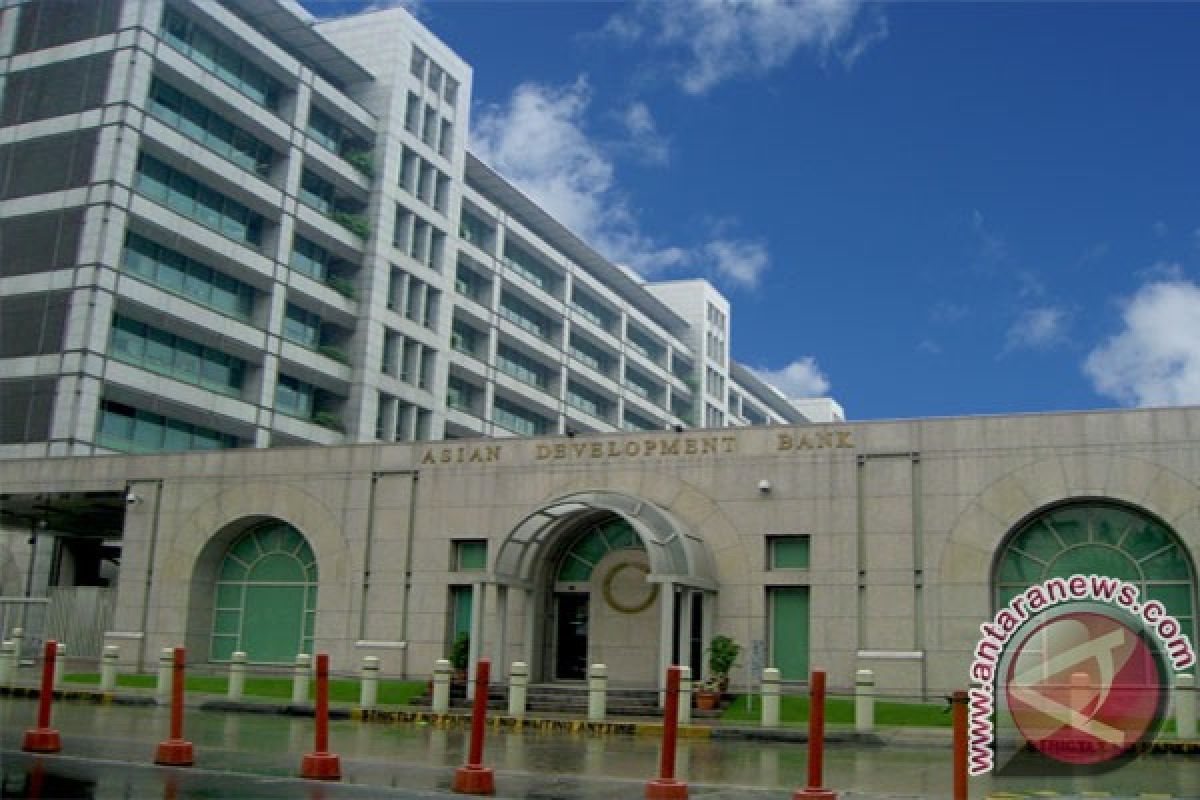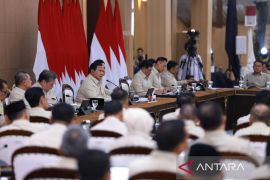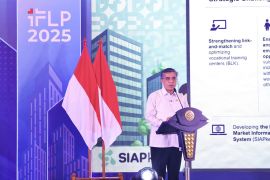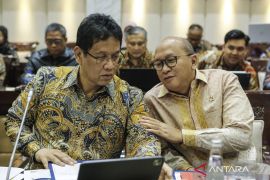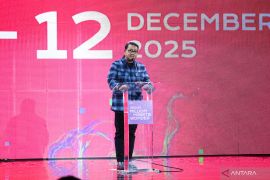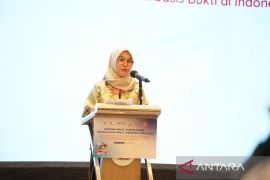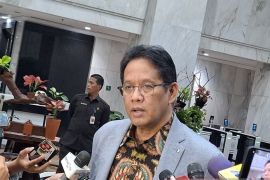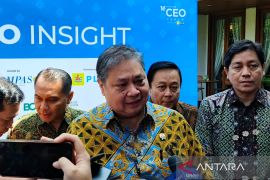The prediction was based on the assumption that the upcoming general elections on April 9, 2014, will proceed smoothly and the government will take steps to improve the investment climate.Jakarta (ANTARA News) - The Asian Development Bank had predicted that Indonesias economy will grow at 5.7 percent this year, slightly down from the previous years growth.
"The ADB predicted that Indonesias economic growth will marginally drop to 5.7 percent in 2014, but rise to 6.0 percent in 2015," ADBs Country Director Adrian Ruthenberg said at a press conference here on Tuesday.
The prediction was based on the assumption that the upcoming general elections on April 9, 2014, will proceed smoothly and the government will take steps to improve the investment climate.
In the Asian Development Banks Outlook 2014, Adrian said private consumption was predicted to grow slowly supported by the decline in inflation and spending during the general elections in the first quarter of 2014.
Meanwhile, investment growth this year was predicted to be the same as last years, but it will start improving in 2015 along with the strengthening of the global trade.
However, the significant challenge Indonesia will face this year is to overcome its current account transactions in 2014 and in the next few years.
ADBs Deputy Country Director for Indonesia Edimon Ginting said in the face of the current account deficit, the Indonesian government had taken steps to slow down domestic demand.
"Apart from that, it was also encouraging exports and slowing down imports in line with the depreciation of the rupiah against the U.S. dollar," he said.
However, according to Edemon, the policy will have an impact only for two years. In the long run, the strengthening of the current account will need structural reforms to boost productivity and sustainable competitiveness.
Economist Ryan Kiryanto of the state-owned Bank BNI said last week that election-related activities in Indonesia this year were expected to contribute 0.2 percent to the national economic growth.
"I believe that the elections will directly boost the economic growth by 0.2 percent," Ryan Kiryanto said last Tuesday.
However, he added the contribution of this years elections to the economic growth will not be as large as that of the 2004 and the 2009 elections.
"This year, demand for T-shirts was low. The public knowledge of politics in 2004 and 2009 was not as good as now. Campaigns can now be conducted through the social media so people do not need to come to the campaign grounds. As a result, the real demand declined," he said.
The 2014 elections will act as an economic stimulus if the political conditions this year were the same as 2004 and 2009, he noted.
Finance Minister Chatib Basri had projected that the elections will contribute 0.2 percent to the national economic growth target of 5.8-6.0 percent this year.
"The contribution of the general elections to economic growth is substantial due to an increase in advertising spending. If spending goes up, demand will also rise," he said.
He noted that household consumption still played a large role in the national economy.
The minister was not worried about Bank Indonesia (BI)s recent move to revise downward its growth target for this year to 5.5-5.9 percent, from 5.8-6.2 percent previously.
"We are still keeping our growth target unchanged at 5.8-6 percent. BI had lowered its growth target range to 5.5-5.9 percent, so the governments growth target is still within the range of BIs growth target," he said.(*)
Editor: Heru Purwanto
Copyright © ANTARA 2014
